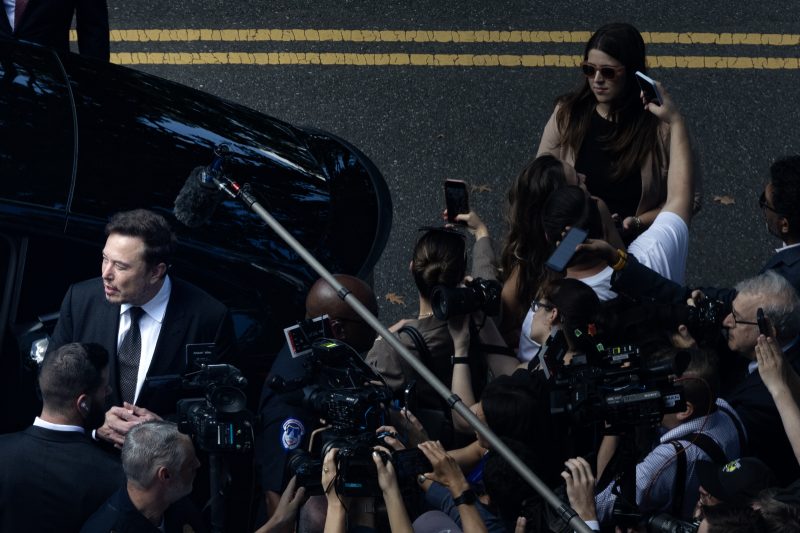Elon Musk’s Misleading Election Claims and Their Impact on Society
In a world where misinformation spreads like wildfire, it is essential to scrutinize the credibility of information put forth by influential figures. One such figure, SpaceX and Tesla CEO Elon Musk, has recently come under scrutiny for making misleading claims about election processes. These claims have reached millions of people and raised concerns among election officials and the public alike.
Musk’s platform as one of the wealthiest individuals in the world gives him a significant reach and influence over a wide audience. With over 80 million followers on Twitter alone, his statements can quickly permeate the online space and shape public opinion. However, with great power comes great responsibility, and Musk’s recent statements on election processes have raised red flags about the impact of misinformation on democratic institutions.
One of Musk’s most concerning claims is related to the security and integrity of the voting process. In a series of tweets, he suggested that there were issues with ballot counting in the 2020 election and implied that the results were not trustworthy. Such statements, without any evidence to back them up, can undermine public trust in the electoral process and sow seeds of doubt about the legitimacy of election outcomes.
Moreover, Musk’s tendency to share unverified or misleading information sets a dangerous precedent for how information is consumed and shared in the digital age. As a prominent figure in the tech and business world, Musk’s words carry weight, and his followers may be more inclined to believe his claims without questioning their validity. This blind trust in influencers can be detrimental to the public discourse and lead to the perpetuation of false narratives.
The reach of Musk’s misleading claims is further amplified by social media algorithms that prioritize engagement over accuracy. When Musk tweets about election-related issues, his posts are often shared and liked by thousands of users, creating a ripple effect that can quickly turn into a wave of misinformation. In the era of echo chambers and confirmation bias, it is crucial to critically evaluate the information we consume and be aware of the potential consequences of spreading false information.
Election officials and experts have expressed concerns about the impact of Musk’s misleading claims on the public’s perception of the electoral process. By casting doubt on the integrity of elections, Musk’s statements could undermine faith in democratic institutions and erode the foundation of free and fair elections. In a time when trust in institutions is already low, it is more important than ever to safeguard the integrity of the electoral process and combat misinformation at all levels.
In conclusion, while Elon Musk’s reach and influence have the potential to shape public opinion and discourse, it is imperative that he exercises caution and responsibility when sharing information on sensitive topics such as elections. Misleading claims can have far-reaching consequences and damage the fabric of democracy if left unchecked. As citizens and consumers of information, it is our collective responsibility to demand transparency, accuracy, and accountability from those in positions of influence. Only by upholding these principles can we ensure a healthy and thriving democracy for generations to come.
